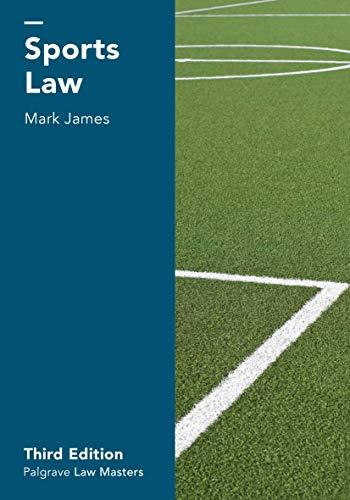Question
The Takings Clause of the Fifth Amendment to the Constitution allows government to take privately owned property if that property is being taken for a
The Takings Clause of the Fifth Amendment to the Constitution allows government to take privately owned property if that property is being taken for a public purpose and if the private owner of the property is paid a fair price for the property taken. Questions have arisen under this provision about what a public purpose is and what a fair price is. One of the strangest questions that has arisen under this provision was about whether there was a taking at all. InLucas v. South Carolina Coastal Council, Lucas owned a lot at the beach and intended to build a house on that lot. Before he could build that house, South Carolina passed a law that prohibited building houses at the beach within a certain number of feet from the water. This "setback" from the water meant that there was no room left on Mr. Lucas's lot for him to build a house, so he sued the state for rendering his lot useless for his purpose and, therefore, taking his property. The case was eventually presented to the U.S. Supreme Court, which decided that South Carolina had taken Mr. Lucas's property and, therefore, had to pay him the value of the lot.
Do you think the outcome of the case was fair? Do you think this was the kind of situation that was contemplated when the Takings Clause of the Fifth Amendment was written?
Step by Step Solution
There are 3 Steps involved in it
Step: 1

Get Instant Access to Expert-Tailored Solutions
See step-by-step solutions with expert insights and AI powered tools for academic success
Step: 2

Step: 3

Ace Your Homework with AI
Get the answers you need in no time with our AI-driven, step-by-step assistance
Get Started


